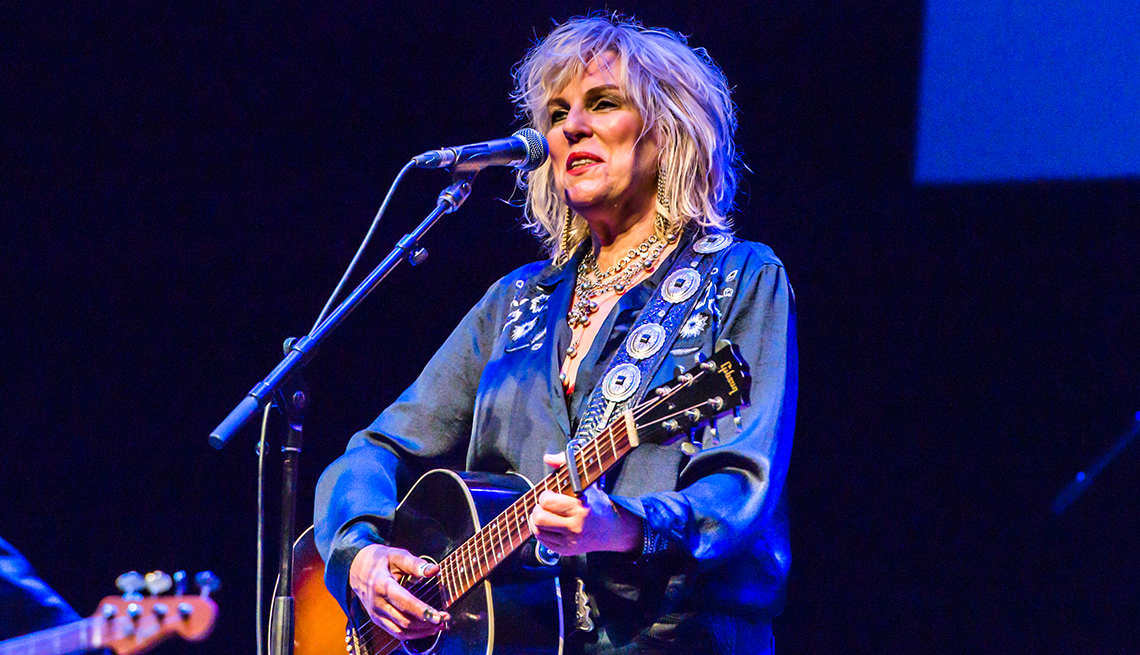Play all audios:
Trauma is also at the heart of “Big Black Train,” a song Williams cowrote with Overby about the crushing freight of depression. Mental illness runs in the family: Her late mother, Lucy, an
amateur pianist from Louisiana, suffered from manic-depression and paranoid schizophrenic tendencies, and was sometimes hospitalized. "I remember one of the times from when I was a
child, looking through the blinds at the ambulance coming and taking her away.” As the eldest of three children, “I think it strengthened me to a certain degree, because I had to survive
emotionally. I learned how to play guitar and started singing songs and writing, and that became my outlet. I was fortunate in that my dad and I had this real strong bond, and that's
what saved me." Her father was the award-winning poet Miller Williams, who moved the family around the country, especially to small and medium-sized Southern towns, for his various
teaching positions. ("I have as much of an affinity for New Orleans as anywhere,” Williams says. “'All my changes were there,’ as Neil Young wrote.") She was born in Lake
Charles, Louisiana, and spent her preteen years in Jackson, Mississippi; Macon, Georgia; and Baton Rouge, Louisiana. The family later settled at the University of Arkansas in Fayetteville in
1971. Much of the singer-songwriter's best work about love and death, especially 1992's haunting “Pineola,” comes from experiences in those earlier years. Young Cindy, as she was
known, was living in Baton Rouge when her mother moved out of the house. She was 12. “That's a hard age, and then my stepmother moved in almost at the same time.” A beat. “I need to
find a good therapist. Sort some things out.” Her father got custody of the children in the ensuing divorce, an unusual ruling for 1965. She and her father, who wrote 34 books but is
probably best known for reading his poem “Of History and Hope” at President Bill Clinton's second inauguration, remained close until his death from Alzheimer's in 2015. In the
early 2000s, they made a series of tandem appearances in which, back and forth, he read a poem and she sang one of her songs. Then one day while they were sitting in his house in
Fayetteville, talking about his writing, he got still and quiet. "He said, ‘Honey, I can't write poetry anymore,'” she remembers. “And I just lost it. I sat there and sobbed
and sobbed, and put my arm around him. He couldn't read anymore, either, because he couldn't concentrate. A part of him was gone. That destroyed me.” _Good Souls Better Angels_ is
often just as forlorn in spots, but the gentle ballad “When the Way Gets Dark” provides hope and comfort for the lost. And finally, “Good Souls,” the album's closer ("Keep me in
the hands of saints/Keep me with the good souls/With the better angels") promises a new day for the resilient who persevere. "We're gonna be OK,” Williams says of getting
through these times. “You know, I'm a rebel, but at the end of the day, I'm an optimist.”

